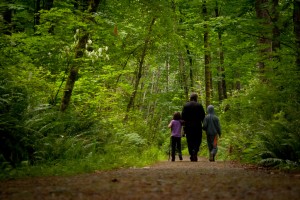I have been working with young people outdoors since 1989. I have always been in awe of how visually beautiful the natural world is, and that it is impossible for a human to recreate this. Of all the things we are capable of, the natural diversity that this planet offers never fails to amaze me!  I have been involved in ‘education’ in one way or another for a long time and have focused my career on how to move people to a more mature way of relating to the natural world. Anything that involves people, requires an exploration of both how we feel about ourselves and how we relate to each other. So, whatever we ‘teach’ we follow the essential mix of exploring our relationship to self, others and nature. In our culture, we have adopted a ‘fast food’ model of education, where everything is standardised, but unfortunately in many cases this does not create conditions where we can flourish. Being human is an organic process and growing up well, involves feeding our passions and following what excites us, whilst not hurting ourselves, others and nature! We are obsessed with getting into college, and if our education, educated for the whole of us (mind, body, spirit, emotion), we may not get a degree, but we are likely to find a niche which is fulfilling.
I have been involved in ‘education’ in one way or another for a long time and have focused my career on how to move people to a more mature way of relating to the natural world. Anything that involves people, requires an exploration of both how we feel about ourselves and how we relate to each other. So, whatever we ‘teach’ we follow the essential mix of exploring our relationship to self, others and nature. In our culture, we have adopted a ‘fast food’ model of education, where everything is standardised, but unfortunately in many cases this does not create conditions where we can flourish. Being human is an organic process and growing up well, involves feeding our passions and following what excites us, whilst not hurting ourselves, others and nature! We are obsessed with getting into college, and if our education, educated for the whole of us (mind, body, spirit, emotion), we may not get a degree, but we are likely to find a niche which is fulfilling. 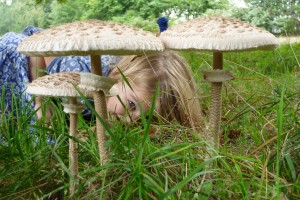 Sir Ken Robinson, rightly, in my opinion has articulated this in so many ways. In his many talks, he offers pertinent examples of people who were challenging in the classroom, who wouldn’t stop figeting and moving, whose actual treatment was the permission to move. Not labelled or criticised. Our bodies are much more than the transportation for our thinking heads. A fireman, who was told throughout his education by his teacher ‘to aim higher’ than his desire to be fireman, years later saved his former teacher from dying in a fire. Ideally we want to be able to customise the learning to a child’s interests, to support them to develop their own solutions, and to be excited about life and learning.
Sir Ken Robinson, rightly, in my opinion has articulated this in so many ways. In his many talks, he offers pertinent examples of people who were challenging in the classroom, who wouldn’t stop figeting and moving, whose actual treatment was the permission to move. Not labelled or criticised. Our bodies are much more than the transportation for our thinking heads. A fireman, who was told throughout his education by his teacher ‘to aim higher’ than his desire to be fireman, years later saved his former teacher from dying in a fire. Ideally we want to be able to customise the learning to a child’s interests, to support them to develop their own solutions, and to be excited about life and learning. ![]() We are all talented at something and we generally make poor use of our talents. Life is wonderfully interactive, our brain thrives on interaction and relationships. Neural pathways are strengthened as they are used, and pruned if not. We are emotional, creative beings, with most of what we experience, happening ‘below the brain’, and through our senses. Like everything in nature, we grow up. In an agricultural, non-industrial model, if we have the right conditions to grow, we flourish. If we are lucky enough, we journey to become mature and satisfied, with the capacity to be generous towards the next generation.
We are all talented at something and we generally make poor use of our talents. Life is wonderfully interactive, our brain thrives on interaction and relationships. Neural pathways are strengthened as they are used, and pruned if not. We are emotional, creative beings, with most of what we experience, happening ‘below the brain’, and through our senses. Like everything in nature, we grow up. In an agricultural, non-industrial model, if we have the right conditions to grow, we flourish. If we are lucky enough, we journey to become mature and satisfied, with the capacity to be generous towards the next generation.  So what’s this got to do with Forest School and the Certificate in Forest School Training – formally known as Forest School Programme Leadership Level 3 Certificate? Forest School, a long-term process in natural spaces develops young people’s whole beings. It’s builds on what we know works – draws on a multitude of outdoor and theoretical disciplines, and aims to foster sparky, happy, connected, resilient children. Children who can make mistakes and bounce back, adults who can support young people’s personalised learning, be authentic, and encourage the diversity of talent and skills that every human is born with.
So what’s this got to do with Forest School and the Certificate in Forest School Training – formally known as Forest School Programme Leadership Level 3 Certificate? Forest School, a long-term process in natural spaces develops young people’s whole beings. It’s builds on what we know works – draws on a multitude of outdoor and theoretical disciplines, and aims to foster sparky, happy, connected, resilient children. Children who can make mistakes and bounce back, adults who can support young people’s personalised learning, be authentic, and encourage the diversity of talent and skills that every human is born with. 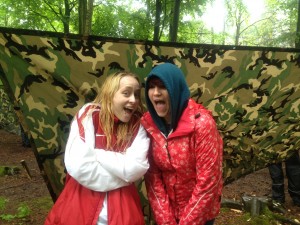 Forest School is based on a rich heritage of outdoor learning going back at least to the 19th century. Philosophers, naturalists and educators in Europe and the UK such as Wordsworth, Ruskin, Baden Powell, Leslie Paul (who founded the Woodcraft Folk in 1925), Kurt Hahn (who founded Gordonstone and was the inspiration for our first outdoor education centres), Susan Isaacs and the Macmillan sisters all laid the foundations for what is known as Forest School today. During the 1970s and 80s our education system moved toward a more teacher/outcome-centred approach in an attempt to improve numeracy and literacy, in particular, and we had the introduction of the National Curriculum. Somewhat in response to this, there was a growth of ‘alternative’ educational models in the 1990s and it is in this context that Forest School emerged. (For more information please link to the Forest School Association).
Forest School is based on a rich heritage of outdoor learning going back at least to the 19th century. Philosophers, naturalists and educators in Europe and the UK such as Wordsworth, Ruskin, Baden Powell, Leslie Paul (who founded the Woodcraft Folk in 1925), Kurt Hahn (who founded Gordonstone and was the inspiration for our first outdoor education centres), Susan Isaacs and the Macmillan sisters all laid the foundations for what is known as Forest School today. During the 1970s and 80s our education system moved toward a more teacher/outcome-centred approach in an attempt to improve numeracy and literacy, in particular, and we had the introduction of the National Curriculum. Somewhat in response to this, there was a growth of ‘alternative’ educational models in the 1990s and it is in this context that Forest School emerged. (For more information please link to the Forest School Association). 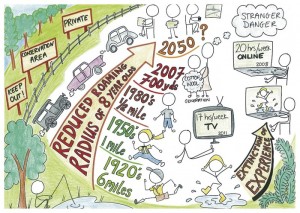 Our Forest School Training puts together a range of key areas. They include learning theories, child development and neuroscience; nature awareness, activities & crafts; woodland management and ecology; tool use and fire making across the ages; health, safety and risk benefit management; planning and delivering child-centred outdoor-based programmes, and so much more…… Our outcomes?
Our Forest School Training puts together a range of key areas. They include learning theories, child development and neuroscience; nature awareness, activities & crafts; woodland management and ecology; tool use and fire making across the ages; health, safety and risk benefit management; planning and delivering child-centred outdoor-based programmes, and so much more…… Our outcomes?
- To move people to a more mature and personal relationship with the natural world.
- To help trainees to deeply reflect on the learning and the principles of Forest School.
- To provide extensive and engaging ways to inspire children, and understand the benefits.
- To equip trainees to deliver Forest School to a high standard and to be committed to continued professional development.
- To challenge what we take for granted, change perspectives, change lives.
- Qualify the trainee to become a Forest School practitioner, able to set up and run an excellent, life-enhancing Forest School programme.
What qualifications does our trainers have?
In order to deliver any accredited qualification (in England and Wales) the trainer is required to have a minimum of a level 4. This is the case for all the levels of Forest School awards. This may be a PTTLs level 4, or a secondary teaching qualification, going up to masters level. Our lead trainer is qualified up to Level 7 in Environmental Education and Management, qualified primary school teacher, with over 25 years working with young people in the outdoors. All our trainers have specialisms, including wild foods, extensive bushcraft skills, nature connection experience and are passionate about nature. Marina Robb and Anna Richardson have co-authored the acclaimed book, ‘Learning With Nature‘, forwarded by Chris Packham. 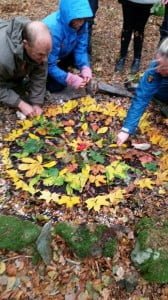 We want our children, their parents and the wider community to lead healthy and happy lives. Our work introduces us all to a wider network of family – the trees, birds, animals, creepy crawlies, the water, wind and sunshine. We develop our capacity of empathy to go beyond care of our immediate loved ones, and extend that a little further. This is both personal, below the brain and rational and scientific.
We want our children, their parents and the wider community to lead healthy and happy lives. Our work introduces us all to a wider network of family – the trees, birds, animals, creepy crawlies, the water, wind and sunshine. We develop our capacity of empathy to go beyond care of our immediate loved ones, and extend that a little further. This is both personal, below the brain and rational and scientific.  If all the insects were to disappear from the earth, in 50 years life on earth would die. We are inextricably linked to each other. Children as young as 5 get this. Their worldview remains animistic. Our intelligence is diverse, distinct and dynamic. The principles under which we are currently educating our children was created in a different context, serving an industrial model and is not on the whole equipping our children to thrive and care take this extraordinary life we are born into. Take a step outdoors, re-engage your senses, remember what you loved as a child.
If all the insects were to disappear from the earth, in 50 years life on earth would die. We are inextricably linked to each other. Children as young as 5 get this. Their worldview remains animistic. Our intelligence is diverse, distinct and dynamic. The principles under which we are currently educating our children was created in a different context, serving an industrial model and is not on the whole equipping our children to thrive and care take this extraordinary life we are born into. Take a step outdoors, re-engage your senses, remember what you loved as a child. 